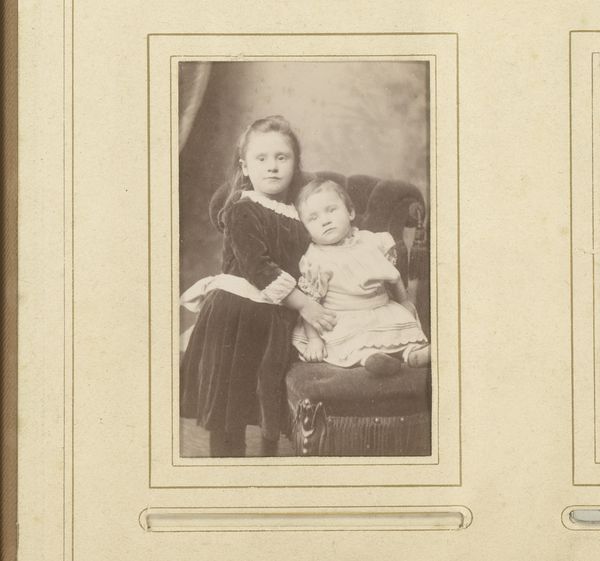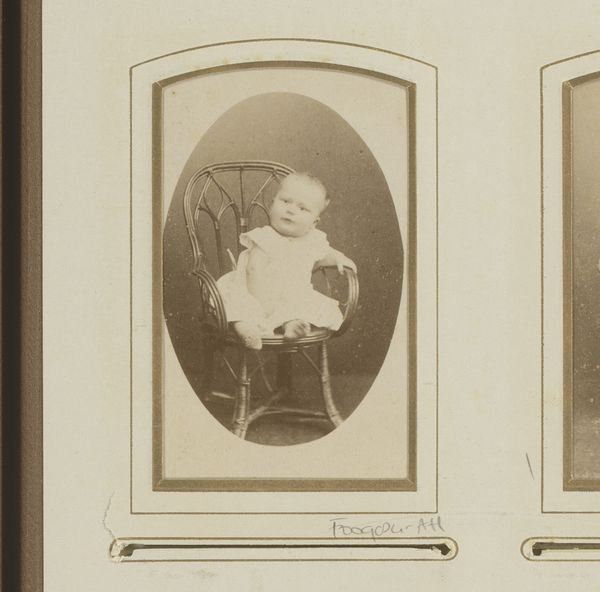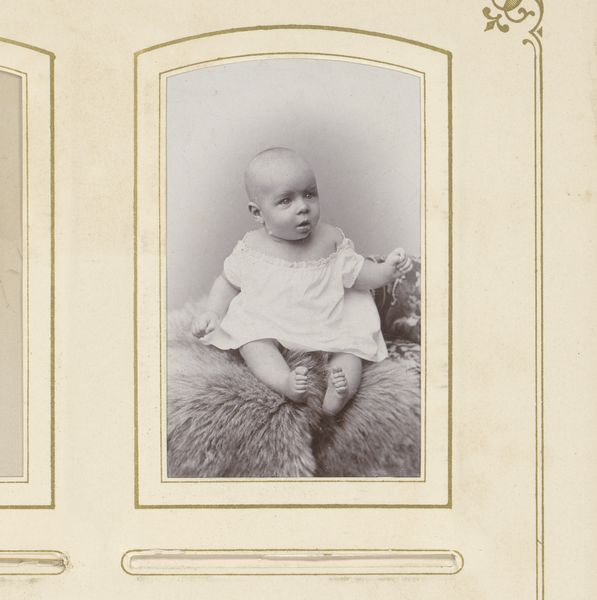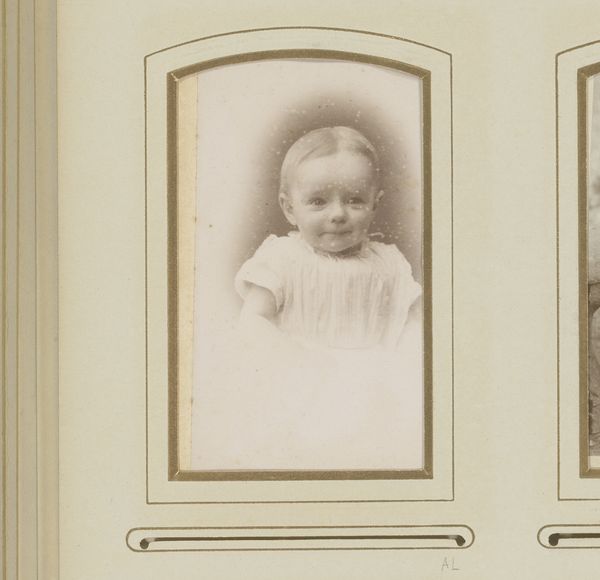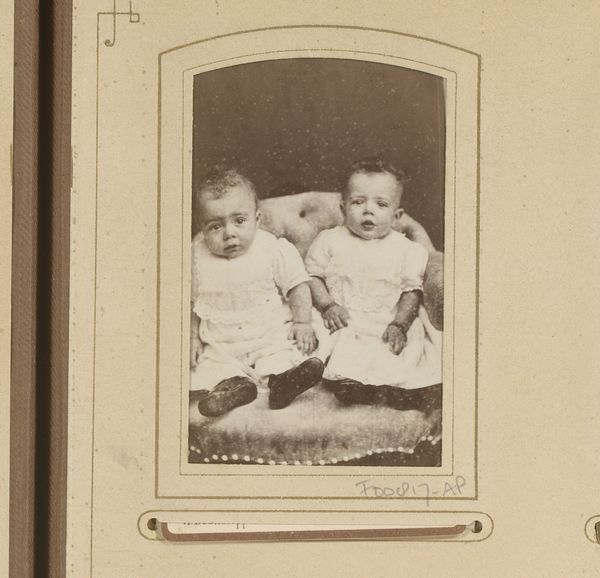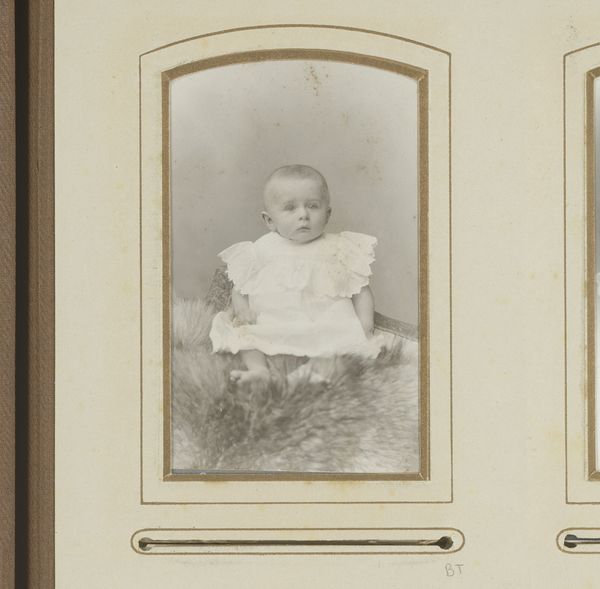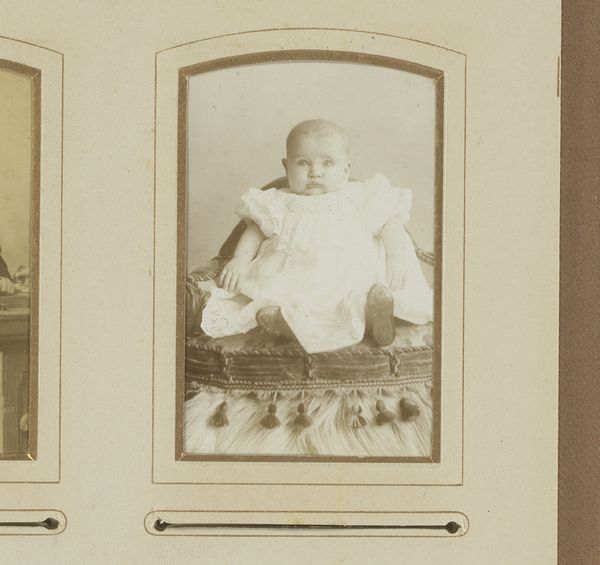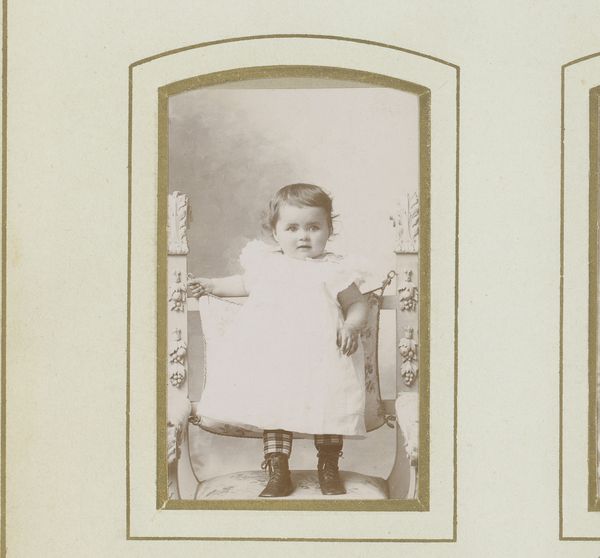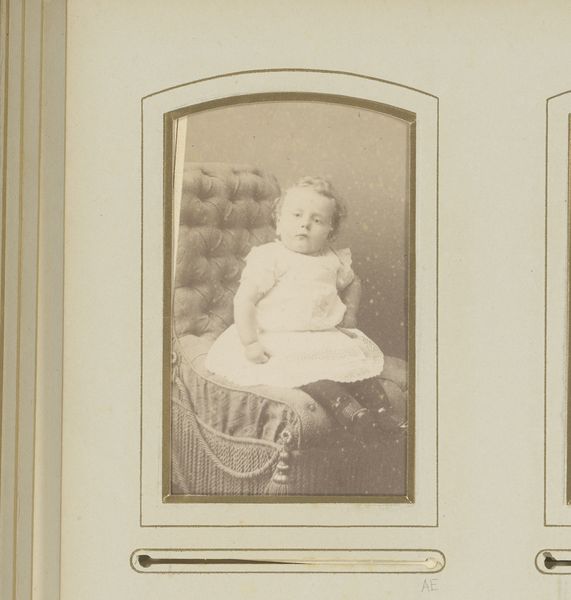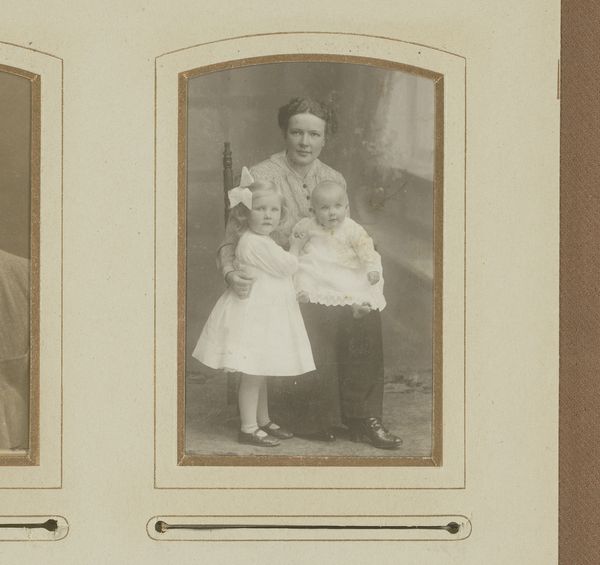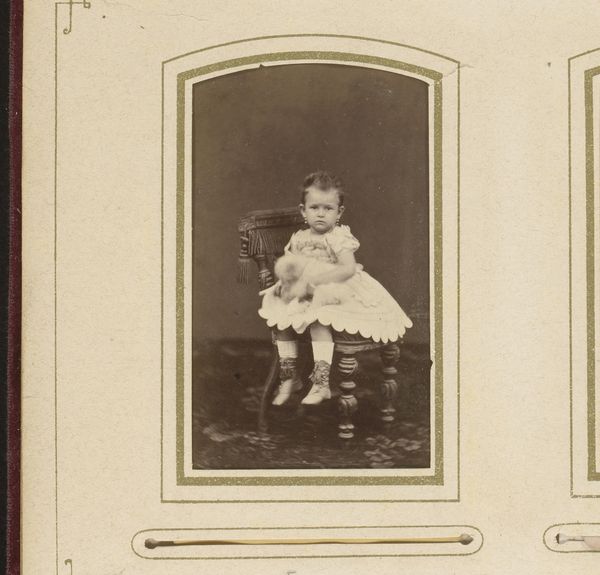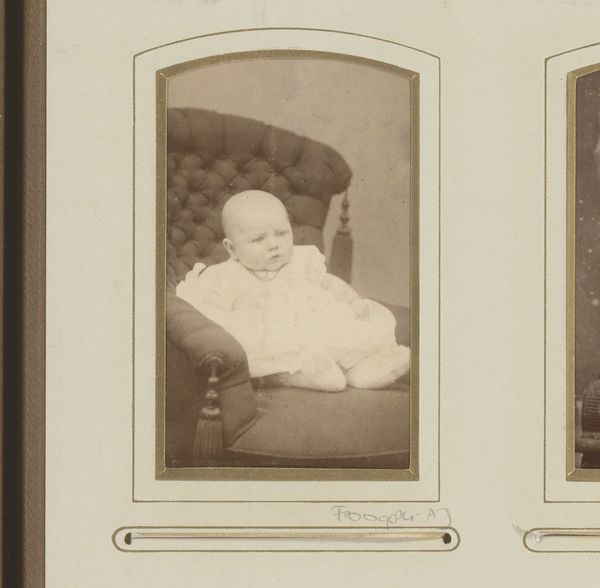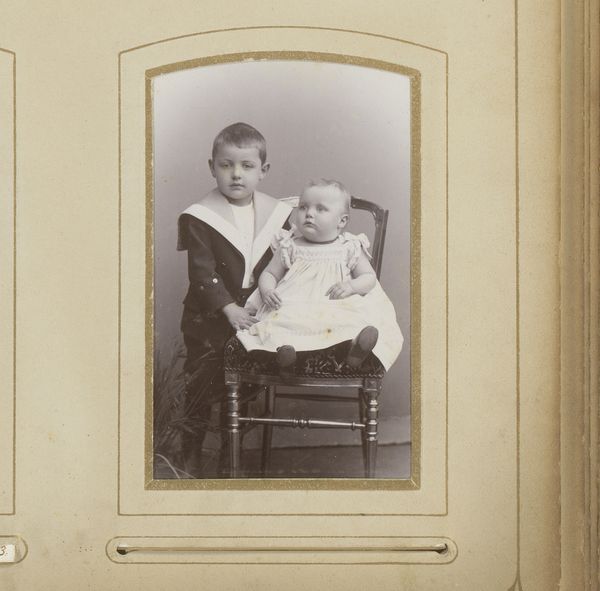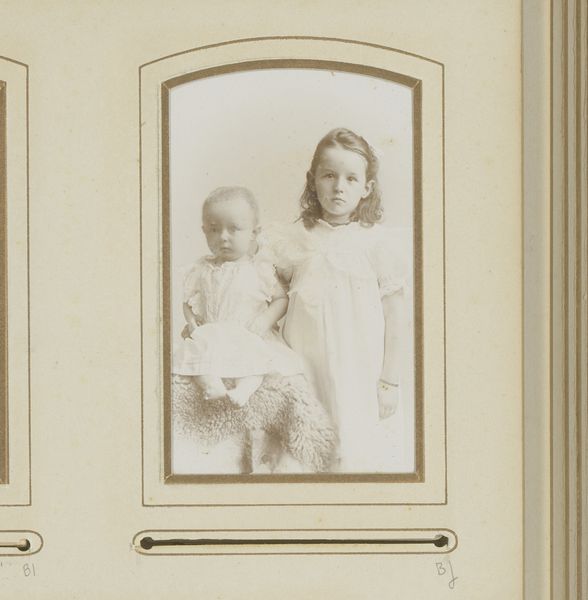
photography
#
portrait
#
pictorialism
#
photography
#
historical photography
#
group-portraits
#
yellow element
#
genre-painting
Dimensions: height 85 mm, width 51 mm
Copyright: Rijks Museum: Open Domain
This photographic print of a boy and a baby was made by Wolffram & Comp. The image is not only a portrait but also an artifact of a specific time in the history of photography. It's a relatively small print, which means that it was likely made using a contact printing process. Here, a negative is placed directly onto a sheet of sensitized paper and exposed to light. This was a common method in the late 19th and early 20th centuries, before enlargers became widely available. The process resulted in a print that is the same size as the negative, requiring photographers to use large-format cameras to achieve larger prints. The tonal range and sharpness suggest the use of a specific type of photographic paper. It's probably an albumen or gelatin silver paper, known for its fine detail and rich blacks. This type of paper was mass-produced. The image encapsulates the rise of mass production and consumption in the late 19th and early 20th centuries. These technical details give insight into the cultural and technological context in which this image was created. By considering these aspects, we can move beyond the surface of the image and delve into the history and significance of photography as both an art and a technology.
Comments
No comments
Be the first to comment and join the conversation on the ultimate creative platform.
